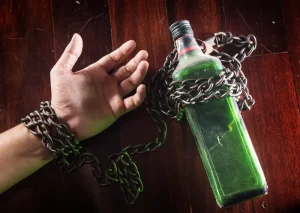
Parents can also help their children tackle peer pressure by talking to them as a friend. Parents can tell their children how they dealt with peer which of the following is a type of indirect peer pressure? pressure when they were young. It helps them explore and tap their dormant potential, teaches them to face challenges, and overcome obstacles.
Signs of school stress and anxiety
- A study in the journal Developmental Psychology found that children who lived with parents who wanted to know their whereabouts at all times were less susceptible to peer pressure.
- But for children and teens, experiencing pressure and stress can be confusing and uncomfortable.
- “Coping with Pressure at School” is a helpful guide specifically designed for teenagers who may experience various challenges and pressures related to their school life.
- Peer pressure, broadly defined, is the influence exerted by a peer group that encourages individuals to change their attitudes, values, or behaviors to conform to the group’s norms.
- The fear of missing out (FOMO) and the expectation of constant connectivity add another layer of stress to teenage life.
Though peer pressure is not usually used to describe socially desirable behaviors, such as exercising or studying, peer pressure can have positive effects in some cases. But for children and teens, experiencing pressure and stress can be confusing and uncomfortable. A child, in the process of forming an identity, needs support and direction from those around him. The best way to make your child strong https://ecosoberhouse.com/ enough to beat peer pressure is to help him build confidence in himself, his abilities, and his decisions, and to treat your growing child with respect. Peers can be your friends who are about your age and have similar interests and experiences. Peers can also be other kids who are about your age and are involved in the same activities with you or are part of a community or group you belong to.
Teach Teens How to Say No
Some indicators include sudden changes in behavior, withdrawal from family and longtime friends, a decline in academic performance, or expressions of anxiety about social situations. Teens report experiencing peer pressure to look a certain way when seeing how their friends look on social media sites. According to a Pew Research Center report on the negative effects of social media on teenagers, 26 percent of teens say these sites make them feel worse about their own life.
TF-CBT Triangle of Life – Mobile game app

The Teen Recovery Program addresses both mental health and substance abuse issues in an intensive outpatient level of care setting specifically designed for teens. If you feel like you or your child may benefit from therapy, check out Psych Central’s guide to seeking mental health support. Some kids’ lives are filled with chronic and acute stressors, both in and out of classrooms. Boredom can be a cause of stress for a gifted or advanced student who doesn’t feel challenged. Sometimes, sources of stress can be obvious to both students and parents.

If you ever need to talk about this or anything else, feel free to get in touch with us. Focus your attention on following your personal goals instead of the goals of the group. Remind yourself every now and then that you’re special and nuke any negative statements.
- Specific portions of the brain that regulate decision-making abilities, impulsivity, and self-control aren’t yet mature at this age.
- Indirect peer pressure, on the other hand, operates through subtle social cues and expectations.
- Encouraging collaboration rather than competition among peers can help reduce stress and foster a more supportive learning environment.
Pediatric Medical Traumatic Stress: A Guide for Parents and Healthcare Providers
It’s similar with sex and “hooking up”—most students have a skewed idea of what others are doing. Knowing the facts can help you to resist pressures based on the idea that “everyone is doing it” and that you must party to fit in. Role modeling good emotional self-regulation may also help your child stick to their own values when it comes to peer pressure. Self-regulation involves the ability to control thoughts, emotions, and behaviors in order to manage current behavior and achieve long-term goals.
Effective communication skills
If your teens face pressure from peers pushing them to do things they know are wrong, teach them to stay away from stressful situations in the first place. If they know that a group of teens tend to look for trouble, avoid hanging out with them. If they know a corner can be dangerous, walk around the block in the other direction. A study outlined in an article on Medline illustrates how peer pressure works. In the study, two-year-old children who observed other kids perform a specific action were likely to mimic it. When these same children saw only one other child perform an action, they were less apt to copy it.

- If their temporary lapse in judgment doesn’t cross into territory in which safety or morality are at risk, try to stay calm.
- Rather than worrying about the effects of their children’s friendships, parents would do well to focus on creating a positive, supportive home environment.
- Peers can be your friends who are about your age and have similar interests and experiences.
Parents can support teens to follow their own thoughts and feelings and still feel like they are fitting in. Peer influence can also lead to engagement in risky behaviors and substance use. The desire to be seen as cool or adventurous may push teenagers to experiment with alcohol, drugs, or other dangerous activities. The stress of navigating these situations, coupled with the potential consequences, can be overwhelming for many adolescents. Because we all want to be accepted by our peers, it can be hard to be the only one saying “no” when faced with peer pressure.
